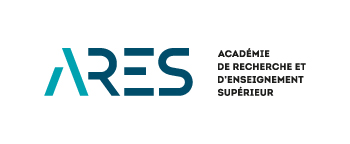On 21 November, the ARES, the Rector’s Conference of the French Community of Belgium, Université catholique de Louvain (UCLouvain), Université libre de Bruxelle (ULB) and Université de Liège (ULiège) formalised the creation of the new local section Scholars at Risk (SAR) Wallonia-Brussels Federation at an event bringing together speakers and participants from different backgrounds involved in protecting academic freedom and supporting academics and researchers at risk.
Vous consultez actuellement cette page en anglais. Pour consulter la version en français, cliquez ici.
The signing of the founding statement by representatives of the section's members kicked off the afternoon's various panels, each of which addressed crucial aspects of academic freedom and the hosting of academics and researchers at risk. The declaration reiterated the objectives pursued by the members of the section, namely to develop more resources to welcome more and better academics, to optimise the sharing of experience and expertise in this field and to inform about the initiatives developed by the member institutions in this area.
The first session, moderated by Pierre Duysinx, Vice-Rector for Mobility and International Affairs at the University of Liège, was an opportunity for the speakers, on the basis of the latest results of the Academic Freedom Index 2023 and the Free to Think 2023 reports, to discuss the alarming decline in academic freedom around the world in recent years, the role of (networks of) universities in protecting this fundamental freedom and the important contribution of philanthropy in supporting societal initiatives that are intended to be innovative and forces for change.
Various initiatives taken or supported by the European Commission in this area were also presented, in particular the MSC4Ukraine and Inspireurope+ programmes and the European Commission's call for a preparatory action launched a few months ago, aimed at setting up a European scholarship programme for 30 researchers at risk.
The second panel, moderated by Marthe Nyssens, Prorector 'Transition and Society' in charge of human rights at UCLouvain, highlighted the importance of involving students in the protection of academic freedom by presenting initiatives such as Scholars at Risk's Student Advocacy Seminars, the Rosa Park legal clinic for human rights at UCLouvain, and projects developed by the European Students' Union (ESU).
This panel also highlighted the aims and challenges of UCLouvain's Access2University programme, which aims to prepare refugees who so wish to return to university by offering them French language courses, university courses and individual support.
Finally, the last panel, moderated by Anne Weyembergh, Vice-Rector for External Relations and Cooperation at ULB, raised the essential role of higher education institutions and the major challenges involved in welcoming academics and researchers in danger. Two researchers spoke about their experiences and the reasons that forced them to flee their countries and institutions, where they were exposed to threats because of the content of their research or the free expression of their opinions.
The speakers on the panel stressed the essential role of higher education institutions in welcoming and integrating academics and researchers at risk into the academic community, but also into society at large. The provision of support such as the International Welcome desk and the ULB Solidarity Fund represents a real opportunity for these individuals, enabling them to pursue their academic careers in a free and secure manner. As a result, ULB has been able to welcome 32 researchers at risk since 2017.
The speakers also highlighted the fundamental role of the supervisor in supporting and integrating these academics and researchers within the institution. They provide an anchor point for these researchers, who, along with their families, are under considerable stress due to their complicated and uncertain situation and the administrative complexities they face.
The event concluded with a broad consensus on the imperative need to protect academic freedom and academics and researchers persecuted for their research and the positions they take. In this context, the creation of the Scholars at Risk local section in the Wallonia-Brussels Federation offers real potential to address the shrinking space for academic freedom around the world.
Nevertheless, the discussions highlighted the major challenges currently faced by the host institutions, in particular the limited financial and human resources available to host and provide adequate support to scholars in danger, and the need to make the hosting arrangements sustainable. There is still a great deal of work to be done in order to welcome more and better academics and researchers at risk. The creation of this section must be accompanied by a series of actions enabling these institutions to optimise and strengthen the impact of their support for this group.
At the heart of the creation of this section is the idea of solidarity and unity. The Scholars at Risk section in the Wallonia-Brussels Federation embodies this imperative by bringing together the efforts of members committed to this field, and encouraging the pooling of resources and expertise. Sufficient financial resources now need to be found and made available so that more academics and researchers at risk can be welcomed and given adequate support.
Vous consultez actuellement cette page en anglais. Pour consulter la version en français, cliquez ici.
MORE INFORMATION: visit the page presenting the SAR section in Wallonia-Brussels Federation on ARES's website.
![]()


